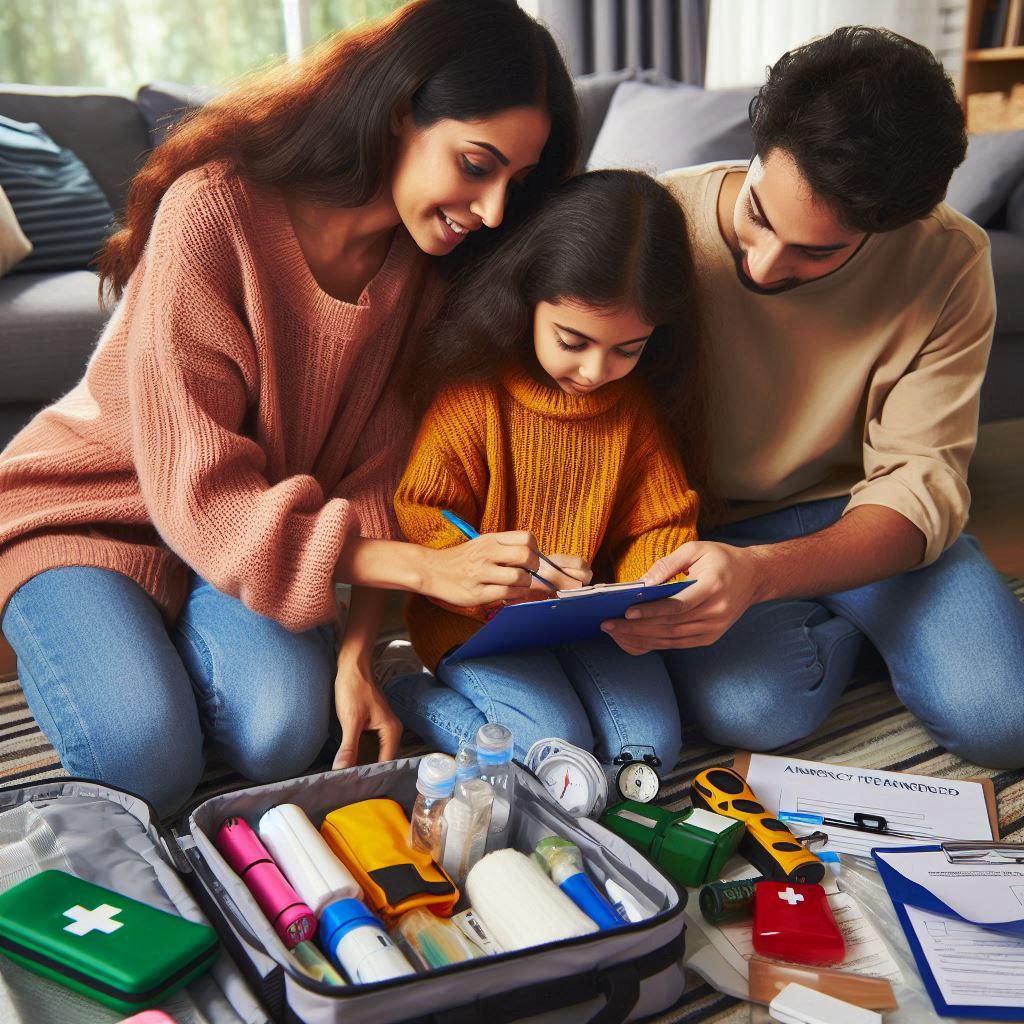Maintaining strong, healthy relationships with loved ones is essential for our emotional well-being. Building a deep and loving bond with your partner requires effort, open communication, and vulnerability. By being mindful in your relationship, tackling challenges together, and practicing kindness, you can strengthen your connection. It’s important to prioritize your relationship, appreciate your partner, and continuously work towards emotional intimacy.
Key Takeaways for Nurturing a Loving Connection With Your Partner
- Prioritize your relationship and make it a central part of your life.
- Practice open and honest communication to build trust and understanding.
- Be willing to share your feelings and be vulnerable with your partner.
- Approach challenges together with compassion and teamwork.
- Cultivate a deep emotional bond through quality time and meaningful gestures.
Why Emotional Connection Matters
Strong relationships are foundational to emotional health. They provide a space for listening, learning, and offering comfort and support during tough times. By focusing on our relationships, we not only prioritize our well-being but also reduce feelings of loneliness and isolation.
Understanding the Value of Relationships

Healthy relationships are the cornerstone of a happy life, offering a sense of belonging and trust. This leads to deeper intimacy and richer, more meaningful connections. By being kind and understanding, we nurture trustworthy bonds that enhance our quality of life.
The Benefits of a Deep Emotional Bond
- Increased emotional well-being and comfort
- Reduced feelings of isolation and loneliness
- Enhanced support and trust within relationships
- Deeper intimacy and understanding with partners
- Improved overall well-being and quality of life
Prioritizing emotional connection in relationships brings numerous benefits, making life more fulfilling and supportive. Being surrounded by trusted loved ones adds immeasurable value to our lives.
“The deepest human connection is the connection between two hearts.”
What is Relational Mindfulness?

Relational mindfulness is a practice that strengthens personal and professional relationships. It involves being fully present in the moment, aware of your own feelings, and considerate of others. This approach helps address relationship issues with compassion and understanding, improving communication, overcoming challenges, and building trust and closeness.
At the heart of relational mindfulness is positive self-talk. By being kind to ourselves, we can extend that kindness to others, thereby strengthening the connections we share.
“Relational mindfulness is not just about being present, but about being present with others. It’s a way of relating that cultivates deeper understanding, empathy, and connection.”
Key Aspects of Relational Mindfulness and Their Benefits
- Presence in the present moment
- Awareness of your own and others’ emotions
- Cultivating compassion and understanding
- Facing relationship challenges with courage
- Practicing positive self-talk
Benefits include stronger, more intimate relationships, improved communication and conflict resolution, enhanced trust and connection, greater compassion for oneself and others, and a deeper understanding of personal and others’ needs.
Practices to Deepen Connection
Building a strong bond with your partner involves effort and mindfulness. By practicing awareness, openness, and kindness, you can grow closer emotionally.
- Face Challenges Head-On: Relational mindfulness encourages addressing issues directly rather than avoiding them. Confronting problems together builds trust and mutual understanding.
- Speak Up and Communicate: Open and honest communication is crucial for emotional connection. Share your thoughts and feelings, listen to your partner, and consider their perspective to create a safe, authentic space.
- Cultivate Compassion: Being kind to yourself and your partner fosters a strong relationship. Kindness, empathy, and understanding create a safe environment where both partners feel valued and accepted.
Building a Loving Connection With Your Partner

Building a loving connection is a journey that involves trust, vulnerability, and meaningful experiences. Prioritize your relationship, show appreciation, and work on emotional intimacy to create a deep, lasting bond. A loving connection is based on understanding, acceptance, and support, providing a space where you can be yourself and feel seen, heard, and cared for.
Focus on these key elements to strengthen the bond:
- Vulnerability: Sharing your deepest thoughts and feelings builds trust and intimacy.
- Shared Experiences: Engaging in activities that bring you closer fosters a stronger bond.
- Appreciation: Regularly show gratitude and acknowledge your partner’s efforts to enhance your connection.
“The greatest gift you can give another is the purity of your attention.” – Richard Moss
Fostering Friendship and Honesty

Building strong friendships contributes significantly to well-being, helping us develop social skills and empathy. Being honest and accepting differences strengthens these bonds and enriches our lives.
Strengthening Your Partnership
Understanding each other’s love languages, as introduced by Dr. Gary Chapman, can significantly improve your emotional connection. Spending quality time together, even in today’s fast-paced world, shows that you care about the relationship and deepens your connection.
Connecting at Work
Forming closer relationships with coworkers enhances the work environment and builds a sense of community. Building rapport through shared experiences and offering support during stressful times fosters trust and friendship.
“Connecting with your coworkers can transform your workday from simply ‘getting the job done’ to a more fulfilling, collaborative experience.”
Deepening Any Relationship

Asking open-ended questions that invite others to share their thoughts, feelings, and experiences helps build trust and emotional closeness, making connections deeper and more meaningful.
By practicing relational mindfulness and focusing on these aspects, you can foster deeper, more fulfilling relationships that enrich your life and bring you closer to those who matter most.
Embracing Vulnerability
One of the cornerstones of a loving relationship is the willingness to be vulnerable. Vulnerability involves opening up and sharing your innermost thoughts, fears, and desires. While this may feel risky, it builds a foundation of trust and authenticity. When you allow yourself to be vulnerable, you create a space where your partner feels safe to do the same. This mutual openness strengthens the bond between you, fostering deeper emotional intimacy and understanding.
Shared Experiences and Quality Time

Creating shared experiences is essential for nurturing your relationship. These experiences can range from simple daily rituals like having breakfast together, to more significant activities like traveling or pursuing a hobby together. Shared experiences create memories and foster a sense of unity and partnership. Quality time doesn’t always require elaborate plans; sometimes, it’s the quiet moments spent together that deepen your connection. Whether it’s a weekend getaway or a cozy evening at home, these moments allow you to reconnect and remind each other of your bond.
Practicing Appreciation and Gratitude
Expressing appreciation and gratitude is vital for maintaining a healthy, loving relationship. Recognizing and acknowledging your partner’s efforts, whether big or small, shows that you value them. Simple acts of kindness, such as saying “thank you” or leaving a heartfelt note, can significantly enhance your emotional connection. When you consistently show appreciation, you reinforce positive behaviors and create a nurturing environment where both partners feel valued and respected.
Conflict Resolution and Emotional Intelligence
Every relationship encounters challenges and conflicts. How you handle these moments can either strengthen or weaken your bond. Practicing emotional intelligence is key to effective conflict resolution. This involves recognizing your own emotions, understanding your partner’s feelings, and responding with empathy and patience. Instead of reacting impulsively, take a moment to listen and understand your partner’s perspective. Approach conflicts with a problem-solving mindset, aiming to find common ground and compromise. This not only resolves the issue at hand but also reinforces the sense of partnership and mutual respect.
Maintaining Individuality
While shared experiences and quality time are important, maintaining a sense of individuality is equally crucial. Encouraging each other to pursue personal interests and hobbies allows for personal growth and self-discovery. A strong relationship is built on two complete individuals who bring their unique qualities to the partnership. By supporting each other’s individuality, you show respect for each other’s personal space and autonomy, which in turn strengthens your connection.
Building Emotional Intimacy

Emotional intimacy is the foundation of a fulfilling relationship. It involves feeling comfortable and secure enough to express your true self without fear of judgment. To build emotional intimacy, engage in meaningful conversations about your hopes, dreams, and fears. Share your thoughts and listen actively to your partner. This mutual sharing fosters a sense of closeness and trust, making the relationship more resilient in the face of life’s challenges.
Conclusion: The Journey of a Loving Relationship
Building and maintaining a loving relationship is an ongoing journey that requires effort, understanding, and commitment from both partners. By embracing vulnerability, engaging in shared experiences, practicing appreciation, and handling conflicts with emotional intelligence, you can create a strong and lasting bond. Remember that relationships are about growth and evolution. As you continue to navigate life together, make time for each other, communicate openly, and cherish the unique connection you share. This will not only deepen your love but also enrich your lives, bringing joy, fulfillment, and a profound sense of companionship.




